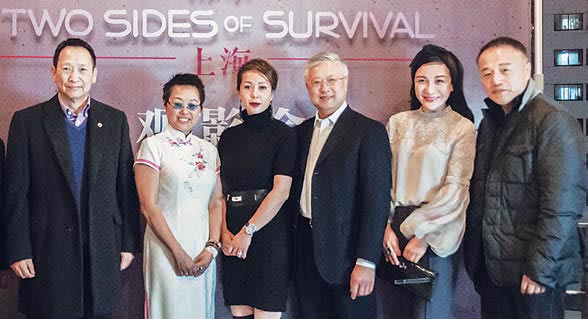
Ceci Chan, Ming Hseih and Sophia Wong
Published:
Overcoming Denial of the Past – Nanjing Testimony Project
With only some 200 remaining survivors of the Japanese military’s 1937 campaign of mass killing in Nanjing, China, firsthand memories might be lost to history if not for USC Shoah Foundation and its donors.
“The Nanjing Testimony Project enables the world, through our web-based educational content, to learn about this heinous crime against humanity,” says Cecilia “Ceci” Chan, who initiated the strategy to fund and support the collection. “The goal is to reach as many people as possible worldwide.” She is passionate about fighting anti-Semitism and any form of irrational hatred.
A local team in Nanjing filmed the interviews, which were conducted by a researcher at the Nanjing Massacre Memorial Hall. The hall will receive a copy of the completed collection, which also will be available through the Institute’s Visual History Archive.
The testimonies seek to establish full-life histories of the survivors, including their social and cultural life before and after the massacre. Most Japanese military records on the killings have been kept secret or destroyed. Even today, a vocal minority in Japan insists that the approximately 300,000 who died is an exaggerated number—or even deny that the massacre happened at all.
“Germany and Japan were the major war criminals in World War II, but the Germans openly acknowledge these horrible events,” says Ming Hsieh, a major supporter of the project. “Not enough people from Japan truly recognize this genocide.” As a result, the Nanjing Massacre is far less known than it should be around the world. “I hope future Japanese scholars will tell the truth to the Japanese people and to the rest of the world, and help make sure massacres do not happen again,” Hsieh says.
Sophia Wong, director of the Nanjing Summer Palace Club and project supporter, agrees. “For far too long, the Nanjing Massacre has remained an afterthought, and we are extremely grateful for USC Shoah Foundation’s efforts to shine light on this dark chapter in history,” she says. “The wounds continue to heal, but the scars must serve as a constant reminder of man’s ability to hate and destroy.”
Chan sees the project—along with all of the Institute’s work—as essential. “If people do not act vigilantly against the insidious rising tides of ignorance, hatred, and violence, humanity will be severely diminished,” she says. “We are all morally responsible to work toward a more peaceful global environment.”